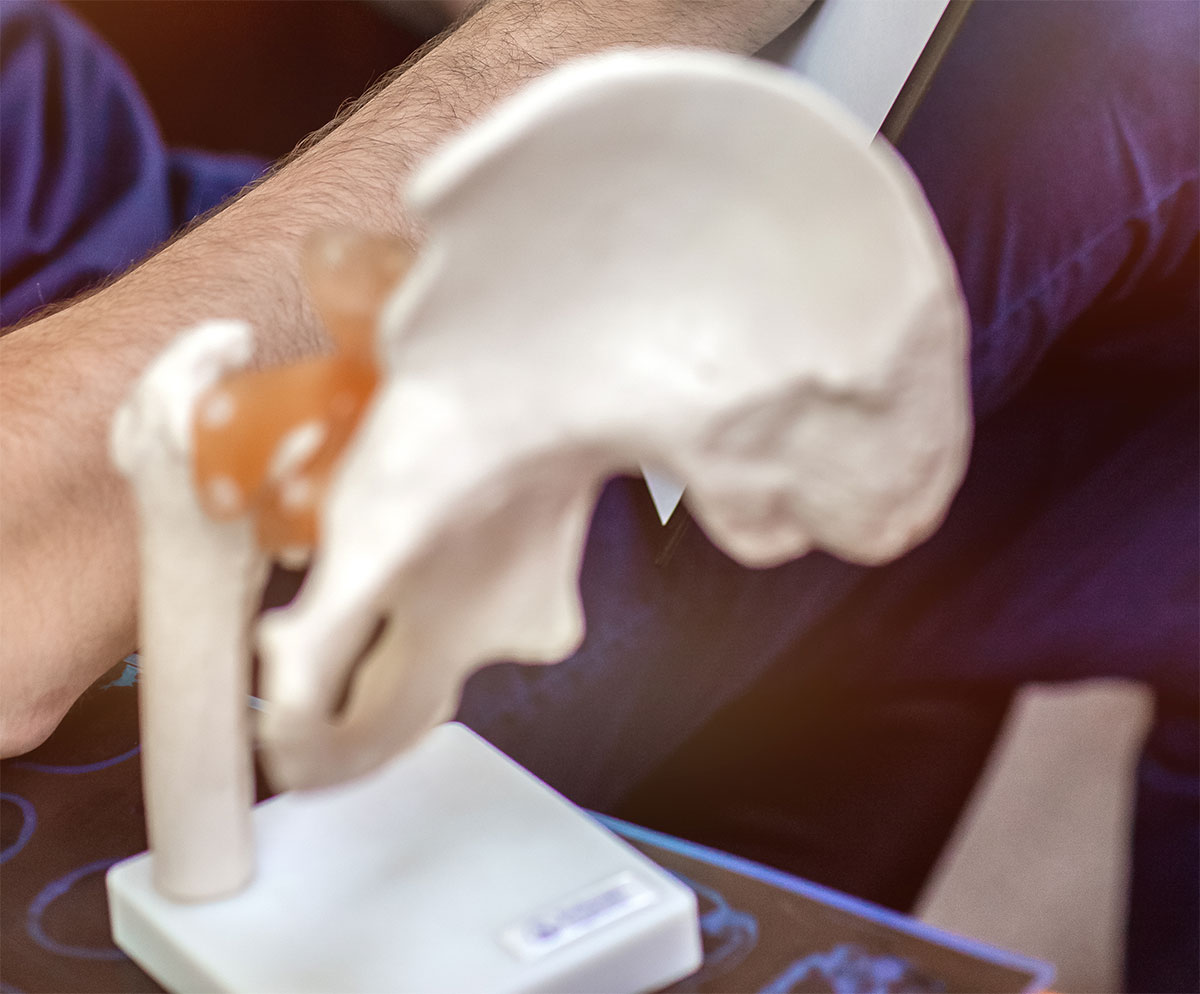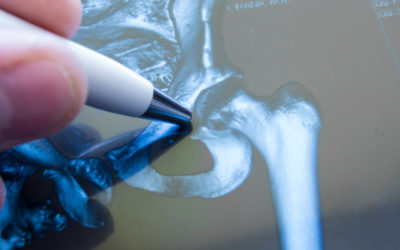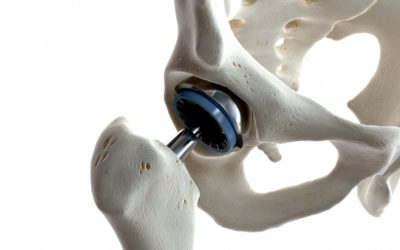Hip Arthroscopy vs Hip Arthroplasty, a step by step info guide.
Hip Pain
Hip pain is a common problem that can have many different causes. The exact spot where your hip hurts can tell you a lot about what’s causing it. When something is wrong with the hip joint itself, it usually hurts on the inside of the hip or in the groin. Hip pain on the outside of your hip, upper thigh, or outer buttock is usually caused by problems with the muscles, ligaments, tendons, and other soft tissues that surround your hip joint.
When you use your hip, like when you run, a cushion of cartilage keeps the hip bone from rubbing against the socket as it moves. Even though it is strong, the hip joint can be broken. Cartilage can wear down or get damaged with age and use, muscles and tendons in the hip can wear out from too much use, and more. Here are some of the conditions that commonly cause hip pain:
- Arthritis
- Hip fractures
- Bursitis
- Tendinitis
- Muscle or tendon strain
- Hip labral tear
- Cancer
- Osteonecrosis
Depending on the condition you are struggling with, there are many treatment options available for hip conditions. Hip arthritis is among the top reasons for hip pain and the need for more advanced treatment such as hip arthroscopy or hip arthroplasty. In this blog, we will discuss these two treatment options and when someone may need them.
What is Hip Arthroscopy?
Hip arthroscopy is a minimally invasive, same-day surgery that uses an arthroscope to figure out what’s wrong with the hip and possibly treat it in the same procedure. An arthroscope is a flexible tube with a camera on the end that is connected to a video monitor. The orthopedic surgeon makes a small cut near the hip so that the arthroscope can be inserted and pointed toward the joint. The monitor shows a magnified image of the tissue in the hip joint, so the surgeon can see any injuries, damage, or other problems in the hip. Hip arthroscopy can be used to find out what’s causing hip pain and treat some hip problems at the same time. For treatment, the doctor makes one or two more cuts using special tools.
When is Hip Arthroscopy Needed?
Hip arthroscopy may be suggested by your doctor if you have a painful condition that doesn’t get better with non-surgical treatments, which include rest, physical therapy, and medicines or injections that can reduce inflammation. Hip arthroscopy can help with many painful problems that damage the labrum, the articular cartilage, or other soft tissues near the joint. Even though this damage can be caused by an injury, it can also be caused by other orthopedic conditions, such as:
- Femoracetabular impingement (FAI) – Bone overgrowth within the hip joint
- Hip labrum tears
- Dysplasia – A hip condition where the hip socket is abnormally shallow
- Snapping hip syndrome – Causes a tendon to rub across the outside of the joint
- Synovitis – Causes the tissues that surround the joint to become inflamed
- Loose bone fragments or bone cartilage that move around in the joint
- Hip joint infection
- Tendon ruptures or disorders
- Sciatic nerve compression by the hip or hamstring
What is Hip Arthroplasty?
Hip replacement, also called hip arthroplasty, is a surgery that relieves pain in the hip. During the surgery, parts of the hip joint are replaced with artificial ones. The ball and socket make up the hip joint, where the ball is at the top of the femur, which is also called the thigh bone. During hip replacement surgery, one or both of the hip’s parts are changed. The goal of the surgery is to give you less pain so you can go about your daily life and exercise again with less or no pain.
When is Hip Replacement Needed?
Your doctor may suggest a hip replacement if you have a lot of pain, swelling, and damage to your hip joint because of conditions like:
- Osteoarthritis
- Rheumatoid arthritis
- Osteonecrosis
- Hip fracture injury
- Tumor in the hip joint
When hip pain makes your life less enjoyable, it may be time to get a new hip. Signs of declining quality of life include:
- Pain that keeps you from getting a good night’s sleep
- Simple things like getting dressed or climbing stairs are hard to do
- Not being able to fully enjoy the things you like to do
What to Expect from Hip Arthroscopy
- Most people get better in about six weeks after having a hip arthroscopy
- How long it takes you to get better depends on why you needed surgery
- After your surgery, you’ll need crutches for a week or two, and you should be able to walk and put more weight on your hip after that
- You will also need to get into physical therapy after your surgery, which could last anywhere from a few weeks to a few months
- In about 12 weeks, you should be able to go back to heavy exercise and sports
What to Expect from Hip Replacement
- You’ll be given painkillers and an antibiotic after surgery
- Your surgeon may give you medicine or physical therapy to avoid blood clots
- Deep Vein Thrombosis (DVT) is less likely to happen after surgery if you take medicine, wear special stockings, and do ankle pumps for two to three days after surgery
- Rehabilitation and physical therapy start right after surgery and continue while the patient is in the hospital and for a year after surgery at home
- The success of a hip replacement surgery and how long it takes to heal depend on several factors, such as the strength of your bones and muscles, your general health, and the way you live
- You’ll do exercises every day that strengthen and stretch the muscles around your hip joint. Most of the time, you’ll do these exercises twice or three times a day for 20 to 30 minutes each time. You’ll also slowly be able to walk, bend, and climb stairs again as your strength and mobility return. It will take you a few weeks to a few months to get back to normal
Hip Arthroscopy vs. Hip Arthroplasty
Total hip replacement, or hip arthroplasty, is a much more invasive procedure than hip arthroscopy. Hip arthroscopy can help a lot of people who are having pain or trouble moving their hips. If arthroscopy doesn’t work or if your pain is too bad, you may need to consider a hip replacement. People who have severe arthritis or a lot of damage to their cartilage usually need a total hip replacement.
Contact us at Tennessee Orthopaedic Alliance to set up an appointment. We will help you live comfortably again.




